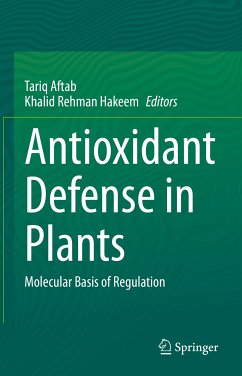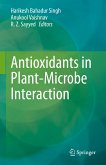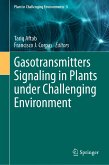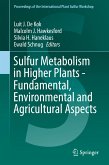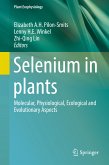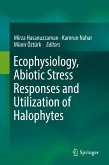This edited book highlights the molecular basis of various enzymatic and non-enzymatic antioxidants, defense mechanisms and adaptation strategies employed by plants to avoid the stressful conditions. Special focus is given to gene expression, omics and other latest technologies such as CRISPR-Cas mediated genome editing applications for defense related studies in plants. Environmental stresses such as drought, salinity or floods etc. induce the generation of reactive oxygen species (ROS) which causes severe damage to cell membrane integrity by accelerating lipid peroxidation. To counteract the detrimental effect of ROS, plants are inherited with an intricate and vibrant antioxidant defense system, comprised of enzymatic (catalase, peroxidase, superoxide dismutase, glutathione reductase, glutathione S-transferase, guaiacol peroxidase, monodehydroascorbate reductase, dehydroascorbate reductase etc.), and non-enzymatic (glutathione, ascorbate, a-tocopherol, carotenoids, flavonoids etc.) antioxidants, which scavenge and/or reduce excess ROS and improve plant tolerance to various stresses. Stress tolerance in most crop plants is positively correlated with an efficient antioxidant system. Therefore, studying the efficiency of antioxidant defense systems in plants is necessary for facilitating the plant's nature of adaptation against challenging environments. This book is of interest to teachers, researchers and academic experts. Also, the book serves as additional reading material for undergraduate and graduate students of biotechnology and molecular biology of plants.
Dieser Download kann aus rechtlichen Gründen nur mit Rechnungsadresse in A, B, BG, CY, CZ, D, DK, EW, E, FIN, F, GR, HR, H, IRL, I, LT, L, LR, M, NL, PL, P, R, S, SLO, SK ausgeliefert werden.

